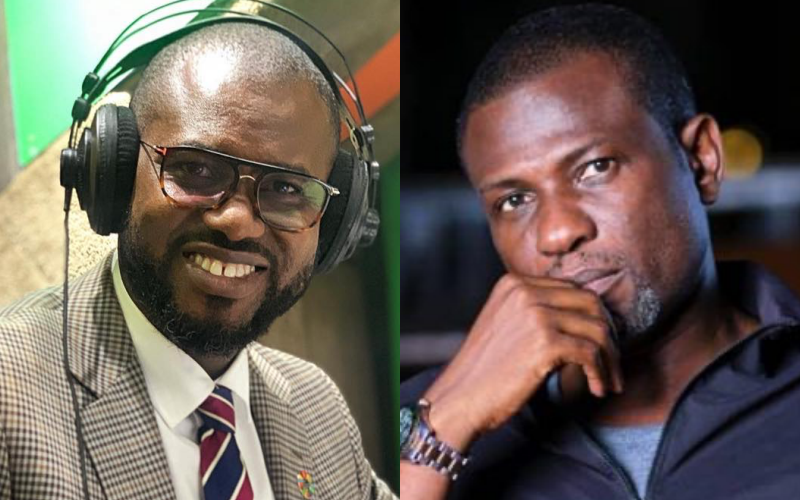The ongoing controversy surrounding media personality Gilbert Abeiku Aggrey, popularly known as Abeiku Santana, and former Deputy Minister of Tourism, Arts and Culture, Mark Okraku-Mantey, highlights the complex intersection of public service and private media engagement. The crux of the matter lies in Okraku-Mantey’s allegation that Santana continues to host shows on Okay FM despite holding the position of Deputy CEO of the Ghana Tourism Authority (GTA). This accusation, publicly aired during an interview on Showbiz AtoZ, has ignited a public debate on the potential conflict of interest arising from such dual roles, particularly within the creative industry.
Santana has vehemently denied the allegations, issuing a statement that categorically refutes Okraku-Mantey’s claims. He asserts that the accusations are “entirely false and misleading,” emphasizing that he is not actively involved in radio broadcasting while serving in his government appointment. This denial sets the stage for a deeper examination of the ethical considerations and potential ramifications of holding concurrent positions in public office and the private media sector.
The debate surrounding Santana’s alleged dual roles raises fundamental questions about the permissible boundaries of engagement for public officials. Does holding a government position preclude individuals from pursuing other professional activities, especially within related fields? The concerns raised by Okraku-Mantey suggest a potential conflict of interest where Santana’s media presence could be perceived as leveraging his public office for personal gain or influencing media narratives related to his government responsibilities. Conversely, restricting public officials from all outside work could discourage talented individuals from entering public service, potentially depriving the government of valuable expertise.
The creative industry, in particular, presents unique challenges in this context. The nature of creative work often involves public visibility and personal branding, making it difficult to entirely separate an individual’s public persona from their official duties. For instance, a musician or broadcaster serving in a government role related to the arts may find their existing public profile intertwined with their official responsibilities. This blurring of lines can create ambiguity and raise questions about the extent to which their public appearances are driven by personal career advancement or their official duties.
The Santana-Okraku-Mantey dispute also underscores the need for clear guidelines and regulations regarding the permissible scope of outside activities for public officials. While outright prohibitions might be overly restrictive, transparent disclosure requirements and ethical guidelines could help mitigate potential conflicts of interest. Such measures would not only protect the integrity of public office but also enhance public trust by ensuring transparency and accountability. The absence of clear regulations leaves room for speculation and accusations, as exemplified by the current controversy.
Looking ahead, the debate sparked by this controversy could lead to a more nuanced understanding of the relationship between public service and private media engagement within the creative sector. It underscores the need for a thoughtful discussion on how to balance the benefits of diverse expertise in government with the imperative to maintain ethical standards and prevent potential conflicts of interest. The outcome of this debate will have significant implications for how public officials in the creative industry navigate their dual roles and maintain public trust. Furthermore, it will likely influence the development of clearer guidelines and regulations to govern such situations in the future, ensuring greater transparency and accountability in public service.


